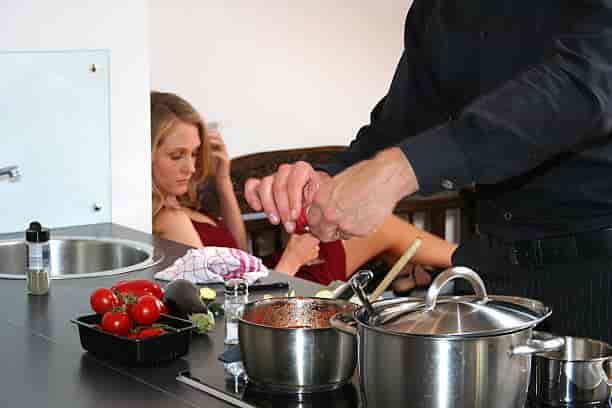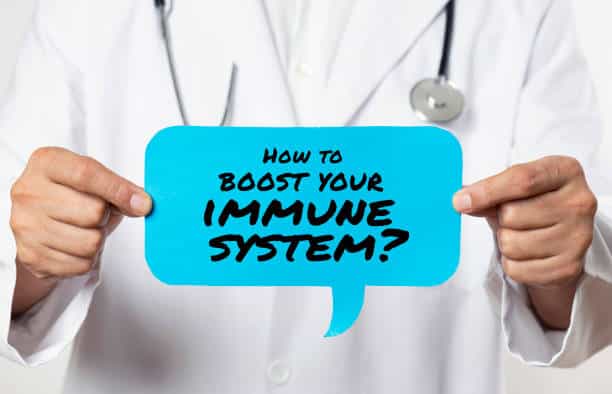
Testosterone Booster
Maintaining normal testosterone levels requires living a healthy lifestyle, which includes a nutritious food. According to certain research, diets rich in ultra-processed foods and deficient in nutrient-dense foods may cause testosterone levels to decline. In this article you will learn seven foods that boost testosterone or rather say, foods that increase testosterone naturally.
What is testosterone? Testosterone is a sex hormone that affects: sex drive, bones and muscle health, sperm production as well as blood cell production. It is a sex hormone that plays important roles in the body. In men, it’s thought to regulate sex drive (libido), bone mass, fat distribution, muscle mass and strength, and the production of red blood cells and sperm. Although testosterone falls with age, other elements, such as certain drugs, having a lot of body fat, and some medical conditions, can also result in low testosterone.
When testosterone levels are below 300 nanograms per deciliter (ng/dL), low testosterone, commonly known as hypogonadism or low T, is present. Through the use of testosterone replacement therapy, low testosterone can be medically treated. Hypogonadism is very common. In fact, around 40% of men over 45 years old and 50% of men in their 80s are considered hypogonadal.
If you have low testosterone levels, follow a medical professional’s recommendations. Additionally, you may consider adopting a dietary pattern rich in foods that contain nutrients important for maintaining healthy testosterone levels.
A variety of nutrients, such as vitamin D, magnesium, and zinc, are important for preserving healthy levels of testosterone. The effect of particular diets on testosterone levels, however, has not been the subject of much investigation.
7 Foods that Boost Testosterone
Foods that increase testosterone: below are seven foods that are nutrient-dense and may support normal testosterone levels.
1. Fatty fish
Vitamin D, zinc, and omega-3 fatty acids are among the nutrients that are abundant in fatty fish like salmon and sardines and are important for hormonal health. Even though certain high fat foods, such as fried foods, have been linked to decreased testosterone levels in some people, research has also shown that low fat diets may be detrimental for testosterone levels.
Low fat dietary patterns were linked to lower testosterone levels than high fat dietary patterns, according to a comprehensive assessment of six studies. However, the researchers noted that more high quality studies are needed to fully understand this relationship.
Henceforth, incorporating fatty fish and other good sources of fat into your diet may be beneficial for your overall health, including your hormonal balance. What’s more, fatty fish are good sources of zinc, vitamin D, and protein — nutrients that are important for maintaining healthy testosterone levels.
For instance, research indicates that testosterone levels are often lower in males with low vitamin D levels compared to those with greater levels. This is because vitamin D is necessary for healthy male reproduction.
2. Dark, leafy greens
Magnesium, a mineral that is essential for maintaining optimum testosterone levels, especially in older men, is found in dark, leafy greens and is a great source of micronutrients. It’s thought that magnesium increases testosterone bioactivity in the body because magnesium reduces oxidative stress. Oxidative stress is an imbalance between antioxidant defenses and free radicals in the body.
Incorporating foods that fight oxidative stress may help maintain healthy testosterone levels since oxidative stress and inflammation can lower testosterone. Therefore, increasing your intake of foods high in magnesium, such spinach, kale, and collard greens, may assist to increase testosterone naturally.
3. Cocoa products
Magnesium and flavonoid antioxidants are abundant in cocoa products like cacao nibs and cocoa powder, both of which are important for testosterone. Flavonoids are plant compounds that have powerful antioxidant and anti-inflammatory effects in the body.
Quercetin and apigenin, two flavonoids found in cocoa, are thought to contribute to the increased synthesis of testosterone by Leydig cells, which are found in the testicles.
When shopping for cocoa products, you might want to select those that have little to no added sugar or none at all. For their remarkable health advantages, think about consuming cocoa powder, cacao nibs, or low-sugar dark chocolate.
4. Avocados
Healthy fat, like that found in avocados, is essential for improving hormonal health. Additionally, avocados contain magnesium and boron, a mineral that may help testosterone levels, according to research.
Boron is a trace mineral that seems to influence testosterone metabolism in the body and may protect against testosterone degradation. Although some research suggests that taking high boron supplements may help certain people’s testosterone levels, the findings are conflicting. To completely comprehend how boron supplements affect testosterone, more study is required.
Adding boron-rich foods to your diet, like avocados, may help you maintain healthy testosterone levels even if it is not presently advised to take boron supplements to raise testosterone.
5. Eggs
Healthy fat, protein, and selenium, a mineral that functions as an antioxidant in the body, are all found in abundance in egg yolks. Selenium may increase the synthesis of testosterone by activating specific pathways and the activation of particular genes, according to several research in test tubes and animals.
Additionally, some studies in humans and animals have found that testosterone levels are higher in those with optimal selenium levels in their blood. However, we need more research, especially in humans, before we can draw conclusions about selenium’s effect on testosterone.
Unless you have an egg allergy, it is a good idea to include eggs in your diet if they aren’t already. Eggs are very nutrient-dense. Since the yolks contain the majority of the vitamins, keep in mind that whole eggs are significantly more nutrient-dense than plain egg whites.
6. Berries, cherries & pomegranates
Flavonoid antioxidants, which are abundant in berries, cherries, and pomegranates, may help shield damaged testosterone-producing cells and boost testosterone production.
In a previous study, testosterone levels were shown to increase and Leydig cells, which create testosterone, were protected from damage when rats supplemented with pomegranate juice. However, we need more research in humans before we can conclude whether pomegranates or their juice can affect your testosterone levels.
Pomegranates, berries, and cherries might guard against the inflammation that obesity causes, which lowers testosterone levels. Therefore, consuming antioxidant-rich foods like these fruits may promote overall health, including hormonal health.
7. Shellfish
Oysters and clams are good providers of omega-3 fatty acids, selenium, and zinc, all of which may help to maintain healthy testosterone levels.
Zinc has a vital role in reproductive health, therefore a lack of it can result in hypogonadism.. Additionally, some men’s hypogonadism may be successfully treated with high dosage zinc supplements. However, zinc supplements are not at this time advised as a standard treatment for hypogonadism..
However, consuming foods rich in nutrients like zinc, selenium, and omega-3 fatty acids that are important for maintaining healthy testosterone levels may help to promote hormonal health.
Other ways that boost testosterone
Changing to a healthier diet may assist with low testosterone, but it won’t treat hypogonadism. Through a physical examination and blood test, a doctor must determine whether you have low testosterone. If you’re diagnosed with low T, you may be prescribed testosterone replacements, such as:
- tablets or pills
- skin patches
- topical gel
- injections
These medications can come with the risk of serious side effects, so make sure you discuss all of them with your doctor. Additionally, consider making dietary adjustments to boost your overall health, not just to treat low T.
Factors like body weight and certain lifestyle choices can affect testosterone levels as well. For example, men with obesity are more likely to develop hypogonadism than moderate-weight men.
Therefore, maintaining a healthy weight is critical for hormonal health. Being more physically active, quitting smoking if you smoke, and cutting back on alcohol and drug use may also help men with low testosterone improve their testosterone status
Symptoms of low testosterone
Symptoms of low testosterone include:
- decreased spontaneous erections
- decreased sex drive
- reduced testicular size
- reduced bone and muscle mass
- loss of body hair
- fatigue
- weakness
- profuse sweating
Remember that low testosterone-related symptoms are non-specific and overlap with those of other, potentially dangerous medical conditions. Self-diagnosing low testosterone is not advised. If you think you might have low testosterone, discuss the best testing options with a healthcare provider.
Signs of high testosterone in a man
Men with extremely high levels of testosterone may experience:
- acne.
- aggressive or risk-taking behaviors.
- excessive body hair.
- headaches.
- heart or liver problems.
- high blood pressure (hypertension)
- high sex drive (libido)
- increased appetite.
What happens if a man has high testosterone? Low sperm counts, testicular shrinkage, and impotence (sounds strange, doesn’t it?) are issues related to unusually high testosterone levels in males. damage to the heart muscle and an elevated risk of heart attack. enlarged prostate and difficulties urinating.
FAQ
The causes of low testosterone and the symptoms it may cause are covered in this section.
Does masturbation decrease testosterone?
The short answer to this question? No. Masturbation and ejaculation haven’t been shown to have any long-term or negative effects on testosterone levels, also known as T levels. Prolactin levels increase and dopamine levels temporarily fall after ejaculation, while testosterone levels are unaffected. Despite its involvement with testosterone, prolactin and dopamine do not seem to have a strong effect on its levels.
Can drinking and drug use impact testosterone levels?
Yes. Research shows that harmful use of alcohol and drugs can affect sex hormone levels, including reducing testosterone. In fact, alcohol and drug misuse is recognized as a potentially reversible cause of hypogonadism.
Is testosterone a steroid?
Is testosterone a steroid? Natural testosterone is a steroid — an anabolic-androgenic steroid. “Anabolic” refers to muscle building, and “androgenic” refers to increased male sex characteristics. But not in the way most people mean. Testosterone is not an illegal steroid and will not cause “roid rage” or the development of breast tissue like illegal steroids will. Testosterone is a naturally occurring steroid hormone produced in the body.
Is testosterone a steroid or a hormone? Testosterone is a steroid hormone that naturally occurs in your body, and it’s involved in a wide variety of processes in your body, like muscle growth and sperm production
Does testosterone make you taller?
Though testosterone is not a growth hormone, it does stimulate the production of HGH and IGF-1. This is why high testosterone levels can lead to an increase in height, especially during puberty
Are testosterone boosting supplements safe?
It’s not a good idea to use supplements marketed as “testosterone boosters”. That’s because many of these supplements contain ingredients like herbs that could potentially interact with medications or cause other dangerous side effects.
For example, pulmonary embolism and elevated liver enzymes are just some complications that have been associated with the use of supplements marketed to boost testosterone. Plus, a study that evaluated 50 “T booster” supplements found that over 10% of the supplements contained ingredients that may negatively affect testosterone levels.
If you suspect that you have low testosterone, avoid supplements marketed as “testosterone boosters.” Instead, talk with a healthcare professional for advice on safe and evidence-based treatments.
Additionally, most people can safely take high quality supplements that contain minerals and vitamins such as zinc and vitamin B6. However, it’s important not to take more than the recommended dosage, as excessive amounts of certain vitamins and minerals can have side effects.
What does testosterone do?
It is a sex hormone that plays important roles in the body. In men, it’s thought to regulate sex drive (libido), bone mass, fat distribution, muscle mass and strength, and the production of red blood cells and sperm.
Do women have testosterone?
Yes, they have and it is actually an important hormone for women too, helping to produce new blood cells, maintain bone health and libido, and boost other reproductive hormones. Women typically have naturally lower levels of testosterone, falling in the range of 9–55 ng/dL while men fall in the 300–1000 ng/dL range.
In women, testosterone is produced in various locations. One quarter of the hormone is produced in the ovary, a quarter is produced in the adrenal gland, and one half is produced in the peripheral tissues from the various precursors produced in the ovaries and adrenal gland.
Does working out increase testosterone?
Yes, your testosterone levels rise after exercise, especially intense, heavy strength training. This increase in level may last just 15 minutes or up to an hour.
Exercise will boost testosterone, though certain types of exercise increase testosterone more than others. Exercise can raise testosterone because it promotes: Muscle building. The more muscle you have, the higher your testosterone levels.
Men often experience a greater and longer rise in testosterone when they strength train in the evening, as opposed to the morning.
Do testosterone boosters work?
Over-the-counter “T boosters” are a popular choice for men looking to raise their testosterone levels. However, new research points toward these supplements as having little or no known effect.
Where is testosterone produced?
Testosterone is produced in the testicles. It is a hormone that your gonads (sex organs) mainly produce. More specifically, the testicles in people assigned male at birth (AMAB) and the ovaries in people assigned female at birth (AFAB) produce testosterone.
Once you start testosterone therapy can you stop?
Testosterone Replacement Therapy is a life-long treatment. If you stop taking it, your testosterone levels will drop. Some men with low-T decide not to be treated. They may find other ways to increase their energy level, or they may decide to live with the changes in their sexual desire and body.
What happens if you stop taking testosterone?
When you stop taking testosterone boosters, your body returns to its pretreatment state. Many users report tiredness and weakness, loss of muscle mass, and fat increase. Reduced sex drive and hair loss are also common symptoms.
What happens if a woman stops taking testosterone?
Weight gain, muscle loss, headaches, and loss of sex drive are all potential outcomes. Because testosterone essentially lets your body operate at full speed, the comedown will typically put you back at your pre-treatment state (or lower).
Bottom line
The hormonal health and testosterone levels are impacted by diet and lifestyle. Eating foods high in minerals like vitamin D, magnesium, zinc, and flavonoid antioxidants that are essential for maintaining healthy testosterone levels may improve hormonal health.
However, it’s important to speak with a healthcare expert for guidance on the appropriate testing and therapy if you have low testosterone or believe you may be experiencing its symptoms.
Share:


